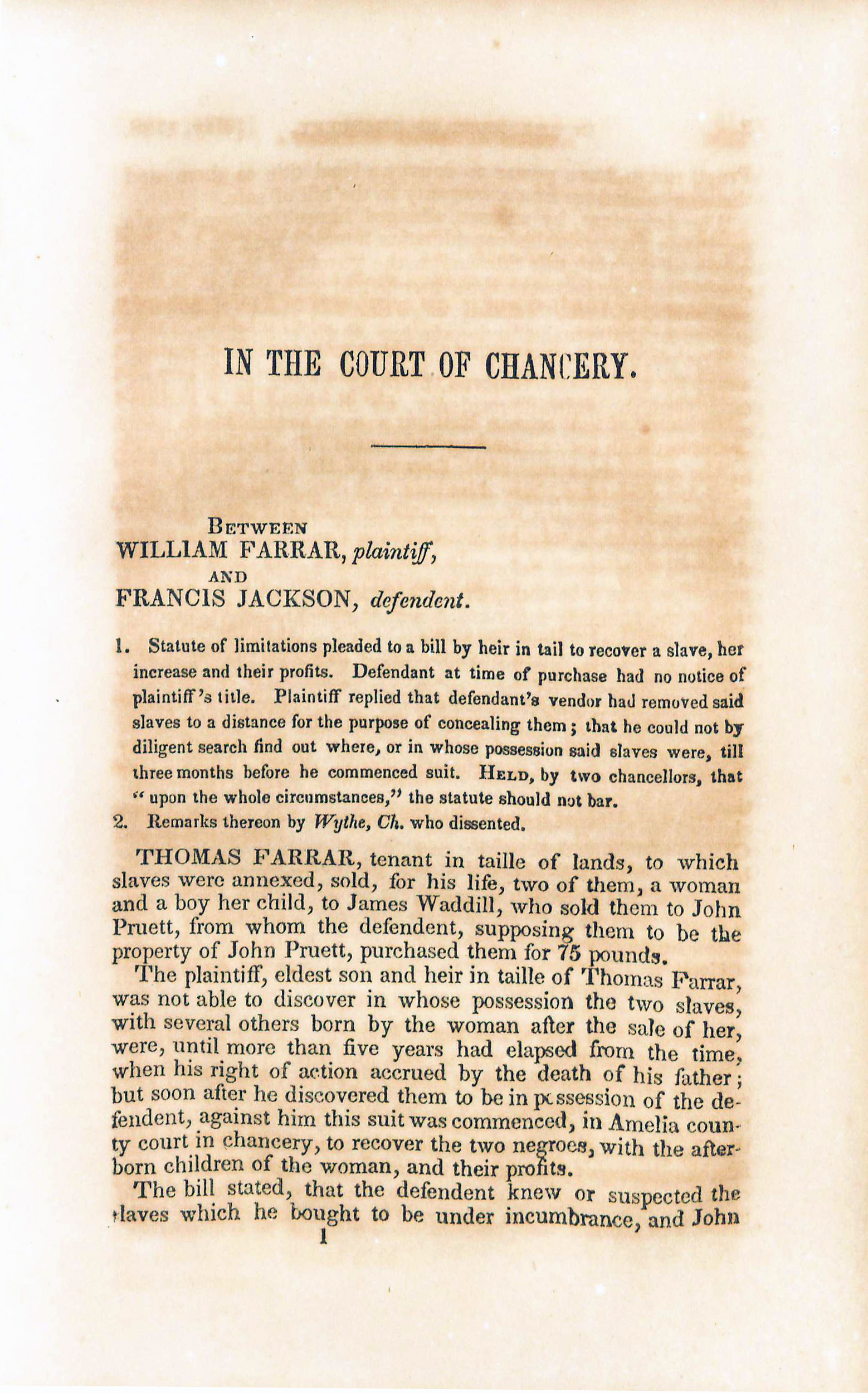Farrar v. Jackson

Farrar v. Jackson, Wythe 1 (1788), is an opinion from the Virginia High Court of Chancery.[1]
Background
The plaintiff, William Farrar, was the eldest son and heir to Thomas Farrar, who was a tenant in tail of land that had slaves annexed to it. Thomas sold two of the slaves, a mother and her son, for Thomas' life to James Waddill. Waddill, in turn, sold the two slaves to John Pruett. The defendant, Francis Jackson, believed that Pruett owned the two slaves and bought them from Pruett for 75 pounds. Title to the slaves transferred to William Farrar upon Thomas' death, but it took him more than five years after that time to locate the slaves; Thomas claimed Pruett moved the slaves to a distant location to make them harder to find. Thomas sued Jackson to recover the slaves and the children who the woman had given birth to in the meantime. The county court dismissed Thomas Farrar's claim due to the statute of limitations.
The Court's Decision
The High Court of Chancery reversed the county court, stating that the totality of the circumstances meant that Farrar's title was well-established, and that Jackson should not be allowed to use the statute of limitations to bar the action. The Court ordered Jackson to return the slaves and pay their profits.
Wythe's Dissent
Wythe dissented from the decision, stating that Jackson should not be barred from using the statute of limitations because Jackson did not take any action to obstruct Farrar's efforts to locate the slaves; equity does not require a bona fide purchaser to actively investigate whether the seller has true title to the item sold. The only person who should not have been allowed to use the statute of limitations as a bar against Farrar's suit, in Wythe's view, was Pruett, the person who actively obstructed Farrar's efforts to locate the slaves.
References
- ↑ George Wythe, Decisions of Cases in Virginia by the High Court of Chancery with Remarks upon Decrees by the Court of Appeals, Reversing Some of Those Decisions, 2nd ed., ed. B.B. Minor (Richmond: J.W. Randolph, 1852): 1.